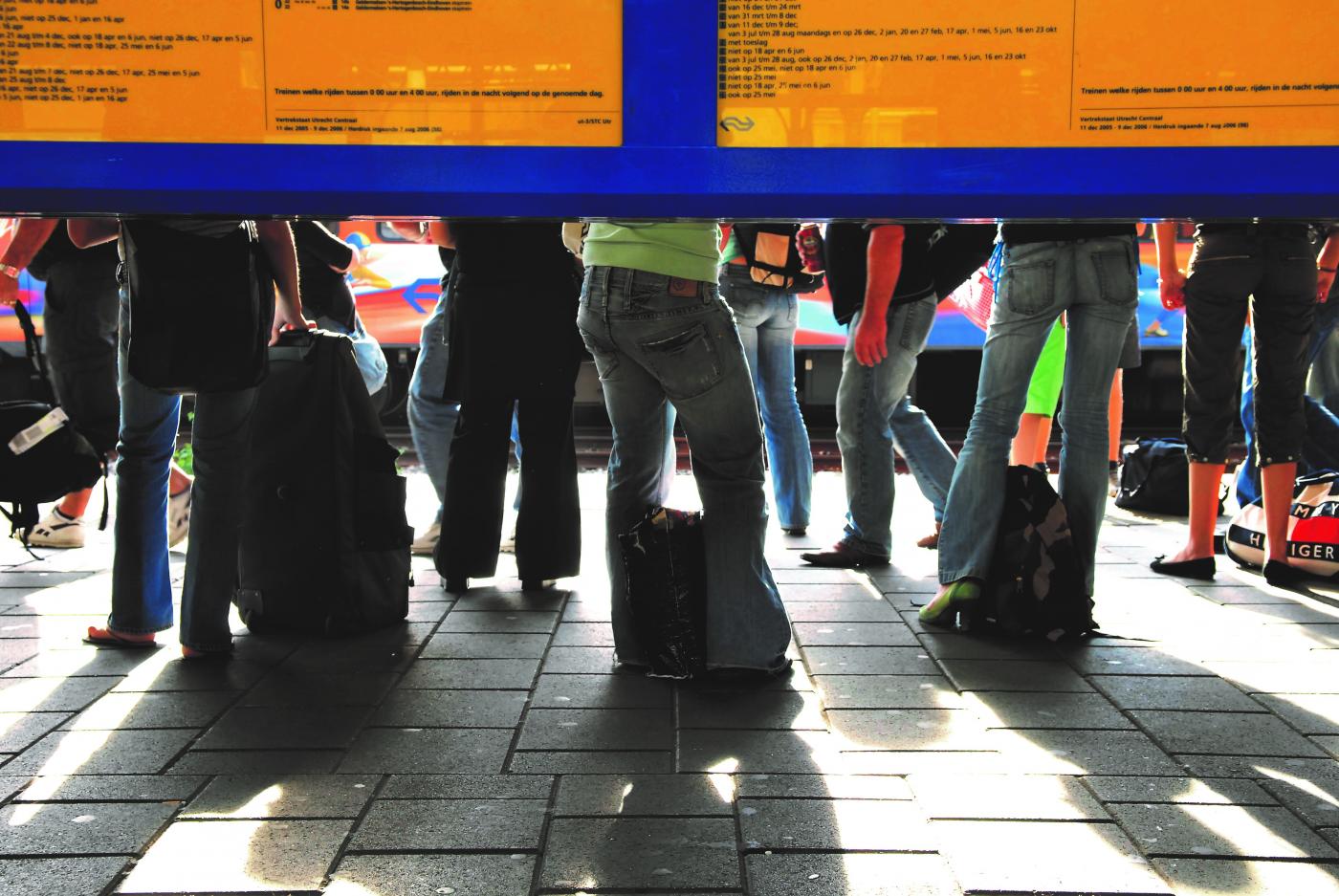Keeping students out of rush hour does not make for cheaper public transport costs

The higher education sector was to receive an additional €200 million provided students were discouraged from travelling during rush hour and the price of the student public transport pass was reduced. For their part, universities and colleges would need to consider introducing more conveniently timetabled teaching periods.
But now Van Engelshoven has written (all links in Dutch, ed.) to the House of Representatives that discouraging students from travelling during rush hour yields little benefit. In fact, it is questionable whether it leads to any saving at all.
In her letter, she states: ‘After all, zero reduction in the average number of kilometres that students travel using their student travel product but merely a (slight) shift in the time that students begin their journeys (…) will not result in any savings.’
Simple
The idea sounded so simple. Having to transport innumerable passengers all at the same time requires large numbers of buses and trains that spend the rest of the day idle and empty. It would be cheaper if some passengers travelled an hour later than others.
On closer examination, however, that assumption won’t wash. This means that we will need to come up with an alternative, a spokesperson for the minister confirmed. ‘It is a tricky dossier,’ he added.
Warning
The then-minister for education Jet Bussemaker warned in an interview with HOP that education institutions needed to do their best, for otherwise they would miss out on the benefits. Some institutions saw little in the plan, while others decided to play ball.
Last month the state secretary for infrastructure and traffic sent out an enthusiastic letter about the great success of the rush-hour avoidance schemes in Nijmegen and Groningen thanks to smarter lecture timetables and other measures.
A billion
As it happens, political parties VVD, PvdA, D66 and GroenLinks had factored the €200 million student public transport pass ‘savings’ into the proceeds to be delivered by their joint brainchild, the new student loan system: it was hoped the system would free up up to €1 billion each year for improving educational quality.
That high figure would in any event be attained in just one year. From the outset critics were sceptical about the feasibility of the public transport cuts. And, indeed, it turned out quickly enough that the cutbacks on the student public transport pass were as good as unattainable.
Budget
The ministry was aware of this, however, which is why the proceeds from the saving on the student public transport pass are not included in the budget. Consequently, this problem should not lead to new cuts in higher education.